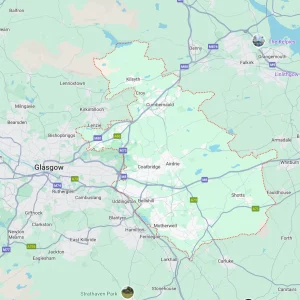Sponsored Links
Research Calls For Faster UK Broadband Speeds
Posted: 18th Oct, 2006 By: MarkJ
The latest survey from analyst Jupiter Research has found that faster speeds will help to drive user generated content services (YouTube etc.). Unfortunately this is one area that the UK has been falling behind on:
The BBC News Online summary goes on to highlight how the speeds advertised are often not what customers receive, which is usually considerably slower. This problem is typically exasperated in remote rural areas that can often be restricted to just 512Kbps.
Some may tout local loop unbundling (LLU) as the answer, yet typically this technology is only introduced into the most densely populated areas (cities and major towns etc.) and similarly fails to solve the limits of ADSL1/2+ technology.
Future improvements to DSL could bring faster broadband to everybody, although Fibre To The Home (FTTH) may be the only true long-term solution. Sadly neither of these will happen quickly, if at all.
But while uptake has helped the UK to the broadband fast track, lack of speed compared to other countries could still see it derailed. Experts warn the UK is falling behind its European counterparts when it comes to speed.
In the UK the fastest speed currently on offer is 24Mbps (megabits per second) although typically the fastest is about 8Mbps. French surfers are enjoying around 24Mbps as standard. BT does not plan to roll out its next-generation broadband until the middle of 2007.
Last year saw a flurry of announcements about faster and faster net connections courtesy of next-generation broadband - ADSL2 - which promised speeds of up to 24Mbps for everyone.
In the UK the fastest speed currently on offer is 24Mbps (megabits per second) although typically the fastest is about 8Mbps. French surfers are enjoying around 24Mbps as standard. BT does not plan to roll out its next-generation broadband until the middle of 2007.
Last year saw a flurry of announcements about faster and faster net connections courtesy of next-generation broadband - ADSL2 - which promised speeds of up to 24Mbps for everyone.
The BBC News Online summary goes on to highlight how the speeds advertised are often not what customers receive, which is usually considerably slower. This problem is typically exasperated in remote rural areas that can often be restricted to just 512Kbps.
Some may tout local loop unbundling (LLU) as the answer, yet typically this technology is only introduced into the most densely populated areas (cities and major towns etc.) and similarly fails to solve the limits of ADSL1/2+ technology.
Future improvements to DSL could bring faster broadband to everybody, although Fibre To The Home (FTTH) may be the only true long-term solution. Sadly neither of these will happen quickly, if at all.
Search ISP News
Search ISP Listings
Search ISP Reviews
Latest UK ISP News








Cheap BIG ISPs for 100Mbps+
150,000+ Customers | View More ISPs
Cheapest ISPs for 100Mbps+
Modest Availability | View More ISPs
Latest UK ISP News
Helpful ISP Guides and Tips
Sponsored Links
The Top 15 Category Tags
- FTTP (6788)
- BT (3879)
- Politics (3069)
- Business (2763)
- Openreach (2661)
- Building Digital UK (2508)
- Mobile Broadband (2470)
- FTTC (2140)
- Statistics (2124)
- 4G (2089)
- Virgin Media (2019)
- Ofcom Regulation (1778)
- 5G (1727)
- Fibre Optic (1603)
- Wireless Internet (1592)
Sponsored
Copyright © 1999 to Present - ISPreview.co.uk - All Rights Reserved - Terms , Privacy and Cookie Policy , Links , Website Rules
































